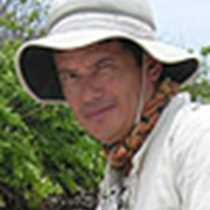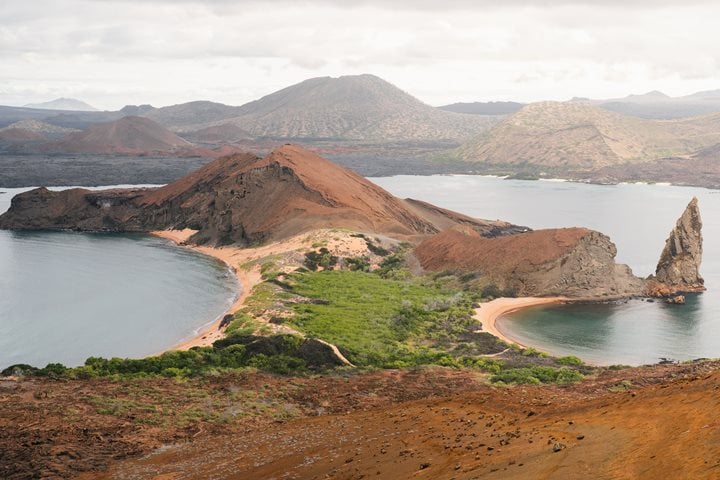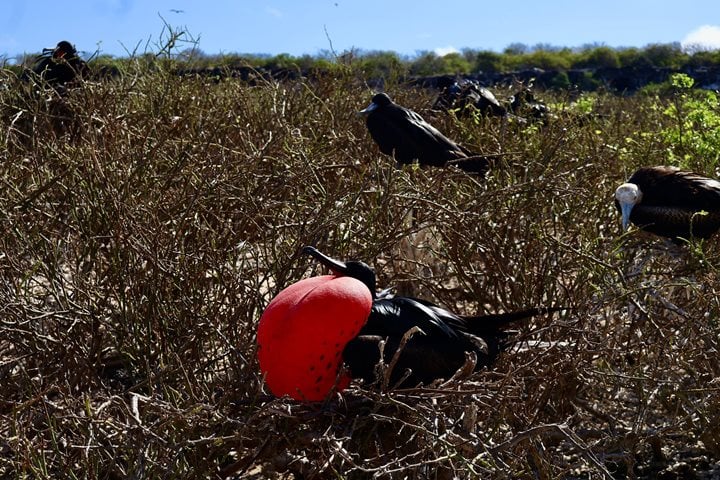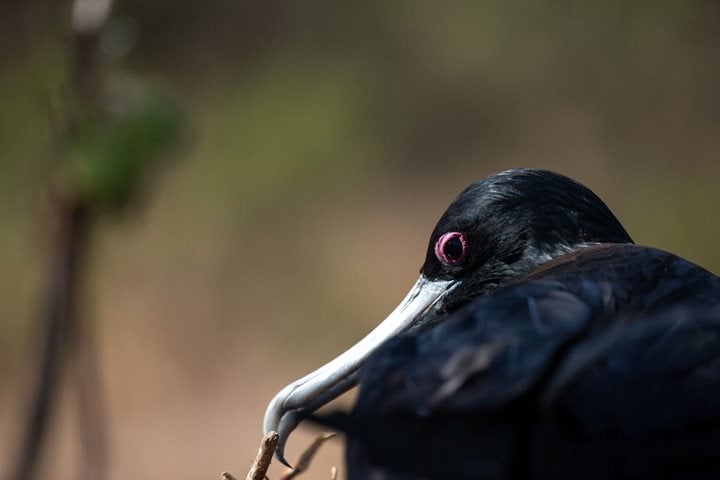In 1832, when President Juan Jose Flores annexed the Galápagos Islands to Ecuador, Charles Island was declared the political capital of the archipelago and renamed Floreana in his honor. This island is located at the southernmost part of the archipelago and for hundreds of years it was a mandatory resupply stop.
Early in the morning we steered Zodiacs to the green-colored beach of Cormorant Point. Walking along the shore, we saw sea lions dozing and blue-footed boobies nesting along the end of the beach with their chicks underneath them. We arrived at the lagoon behind the beach, where we observed waders, such as black-necked stilts and greater flamingos, feeding on small crustaceans.
Walking inland, the landscape changed completely. Dry vegetation and “holy” trees covered the slopes of conical hills. We observed small ground finches, yellow warblers, and great blue herons along the path that led to a second beach, which had white sand instead of the dark sand of the earlier beach. This sand was fine, like flour, and featured some sea tracks—evidence that sea turtles came here last night to deposit their eggs along the dunes on the upper part of the beach.
After breakfast, our guests had the opportunity to look for the elusive Floreana mockingbird by riding Zodiacs along Champion Islet, one of the last refuges of a bird that has nearly disappeared when animals were introduced to Floreana. We observed many of them on cactus trees. Along vertical cliffs, swallow-tailed gulls and tropical birds nested or protected their fluffy chicks.
In the afternoon, the National Geographic Endeavour repositioned to Post Office Bay, where we kayaked along the shallows, observing sea turtles, sea lions, and sea birds nesting in the mangroves trees. Afterward we disembarked at Post Office Bay, where our guests visited the old barrel used as a mailing system by buccaneers and pirates since the 1700s.
It was late and the temperature dipped with a soft cold breeze. Clouds covered the mountains with a mysterious halo, telling us it was time to return to our dear ship.







